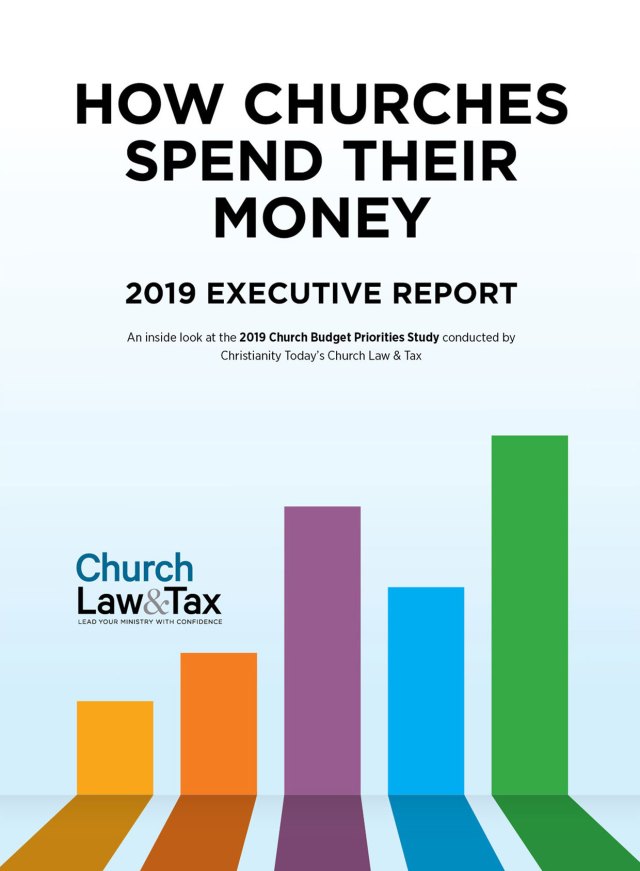Good economic times or bad, many congregations look for new kinds of funding for ministry programs. I often run into church staff members who are convinced there is a “magic grant” somewhere that can alleviate their congregation’s financial worries—they just need to find it.
Usually, though, there is no magic grant. Congregations who receive grants often work at securing the funding during a period of years because building relationships with funders takes time.
Grants, it’s also important to note, most often go toward supporting church programs focused on serving the community, and usually can’t be directed toward deficits, operating expenses, or the core internal ministry programs of a church.
Throughout the years, I have worked with a number of church congregations that have secured grants to support their community ministry efforts. This outside funding helps churches hire outreach staff, and sponsor health clinics, housing programs, youth centers, and schools (among many other programs). If administrative or pastoral staff members of the church are working on community programs, then grants may even pay part of their salaries.
The following are six characteristics of church programs that are most likely to receive funding from a foundation or corporation. A church that can answer “Yes” to all or most of the items on the list has a better chance of successfully finding grants to help with its ministry efforts:
- The program benefits at least some people outside of your church congregation. Many foundations and corporations are sensitive to supporting programs that are targeted to an exclusive group of people. A proposal that benefits only church members or people in a particular denomination (or just Christians, for that matter) may struggle to secure grants. Foundations and corporations often work communitywide on key issues and want to see that as many people as possible have access to the services they fund.
- The program is not one of the core internal programs of your church. Many foundations and corporations will not support core internal ministry programs of a church, such as worship, spiritual formation, Sunday school, or pastoral care. From a funder’s perspective, church members ought to be the ones who pay for services they use in a church setting. There are exceptions to this, such as the funding received through a denomination, or through foundations like the Lilly Endowment, which work to build the capacity of clergy.
- The church can separate out the spiritual component of the program or make it optional. Foundations and corporations that do not have spiritual goals for their grantmaking are unlikely to support a program with a spiritual component that’s mandatory for participants (for example, requiring participants at your youth center to attend Bible study or worship services). It’s important for you to be clear about whether spiritual outcomes are a key part of your vision and a key component of your program before you have a conversation with a funder who may not share your spiritual goals.
- The program possesses clearly defined outcomes. What changes in the lives of your participants because of your work? You need to answer this question in concrete terms before you apply for grants. Outcomes aren’t just a list of the activities you deliver, such as the number of tutoring sessions offered each week or the number of doctor visits at the health clinic. Outcomes in these cases would be improved test scores or grade-point averages for students, or the successful early detection and treatment of health problems.
- The program possesses a well-developed plan. Spend time developing a clear plan for your program before you submit your proposal. In detail, you should describe: who will be served;where and when the program will occur, and how often; the activities involved, and the role of staff and volunteers.
- The program works collaboratively with other organizations. Collaboration is a key trait that funders look for in grant applicants, and they will look to see if you have partnered with “key players” in your community. For example, if your church runs a job training and placement initiative, you might partner with a transitional housing program that can provide housing for your clients. So consider how you might collaborate with schools, other churches, health professionals, and other groups of people to add value for your program participants. Spend some time developing those partnerships before sending the proposal.
- By keeping the above points in mind, your church may find grant support for its outreach efforts. In my experience, grant funders can be great partners in ministry, adding their resources to the time and money provided by the members of your congregation.
- Park Avenue United Methodist Church
-
Park Avenue United Methodist Church in South Minneapolis has received grant funding for decades through a separate nonprofit attached to the church called Park Avenue Youth and Family Services (PAYFS, formerly known as the Park Avenue Foundation). Many churches around the country have developed separate nonprofits in order to attract new funders, partners, and volunteers into their ministries.
Throughout the years, PAYFS has secured foundation, corporate, and government grants for a wide variety of programs, including a computer learning center, a summer program for youth, health and legal clinics, and most recently Tronix, a science enrichment program that works with community partners to reach middle-school students in 22 public schools. Tronix is funded by a number of science and technology companies in the Minneapolis area that are particularly interested in science education as a way to create a strong and capable future workforce.
Grants are valuable to PAYFS because they often provide a larger “chunk” of money all at once, which other types of donors can’t provide.
But grants pose challenges, too.
Tessa Trepp, director of PAYFS, says grants also bring administrative burdens.
“It’s a strong point of integrity for us to be able to meet all the standards of the funder and do what we said we would do,” she says. “We have to be honest and accurate in what we report, but it can be challenging to collect data on the impact of our programs.”
Building relationships with secular funders also poses challenges.
“It’s very hard to get grant funding for anything that is evangelistic. Many funders want to know specifically how we will serve people of other faiths,” Trepp says. “One strategy I have used recently: I asked a funder to pay for our field trip buses and let them know that I had other funding for the spiritual component of our program.”
Trepp says people in the Park Avenue congregation often email information regarding grant opportunities to her, making them one of her best sources of information. She also researches local business journals to identify companies that are doing particularly well.
While grants can meet resource needs, Trepp advises congregations to ” … make sure you don’t get pulled off mission by grant opportunities,” she says. “If they say you have to do things on Tuesdays, you might start doing it in order to get funding, even if it doesn’t fit your mission and plan.”
- Grace Fellowship Community Church
-
Grace Urban Ministries (GUM), a nonprofit connected to Grace Fellowship Community Church in San Francisco, partners with churches to provide services to families and children in the Mission District of the city and surrounding neighborhoods. GUM’s programs include an educational mentoring program for youth, a citywide health fair, and skills training for parents and other adults.
Like Park Avenue, GUM also successfully secures grants for programs. But it has turned down funding at times in order to structure programs in a way that meets the organization’s values.
For example, a skill-building program for adults called Kaleo is very “relational and organic,” rather than “structured and programmatic,” according to Craig Wong, GUM’s executive director.
The program is flexible, changing from week to week to respond to the needs of participants. Often, more time is spent developing relationships than delivering services, which presents a problem for some funders, since they tend to support programs that deliver concrete, measurable outcomes.
But too much focus on outcomes and results can create tensions that GUM doesn’t want, Wong says.
“We don’t want the heart of our tutoring program to be driven by results,” he says. “We want to focus more on loving children and embracing them as family, not being results-driven.” As a result, GUM receives more of its funding from small family foundations in the area that focus less on measurements and outcomes.
Wong says grants have given GUM an opportunity for Christian witness through its relationships with secular foundations.
“We bring a prophetic word and presence to people with resources,” he says, “bringing insight about how to respond to impoverished communities and to immigrants.”
But like PAYFS, grants also bring drawbacks, including cyclical ups-and-downs.
“You can have a great grant year and then a horrible one,” he says. This underscores the need for ministry leaders to maintain balance between individual donor support, church gifts, and grants.
“It’s important to speak to funders with absolute candor and to be free with whatever the outcome is,” Wong concludes. “We need to practice fundraising in a way that nurtures our dependence on God, trusting that all we need to be His witnesses will be provided. We shouldn’t look at foundation funding as what will make or break our witness to the world.”
Joy Skjegstad is a speaker and consultant on nonprofit management and ministry development.





